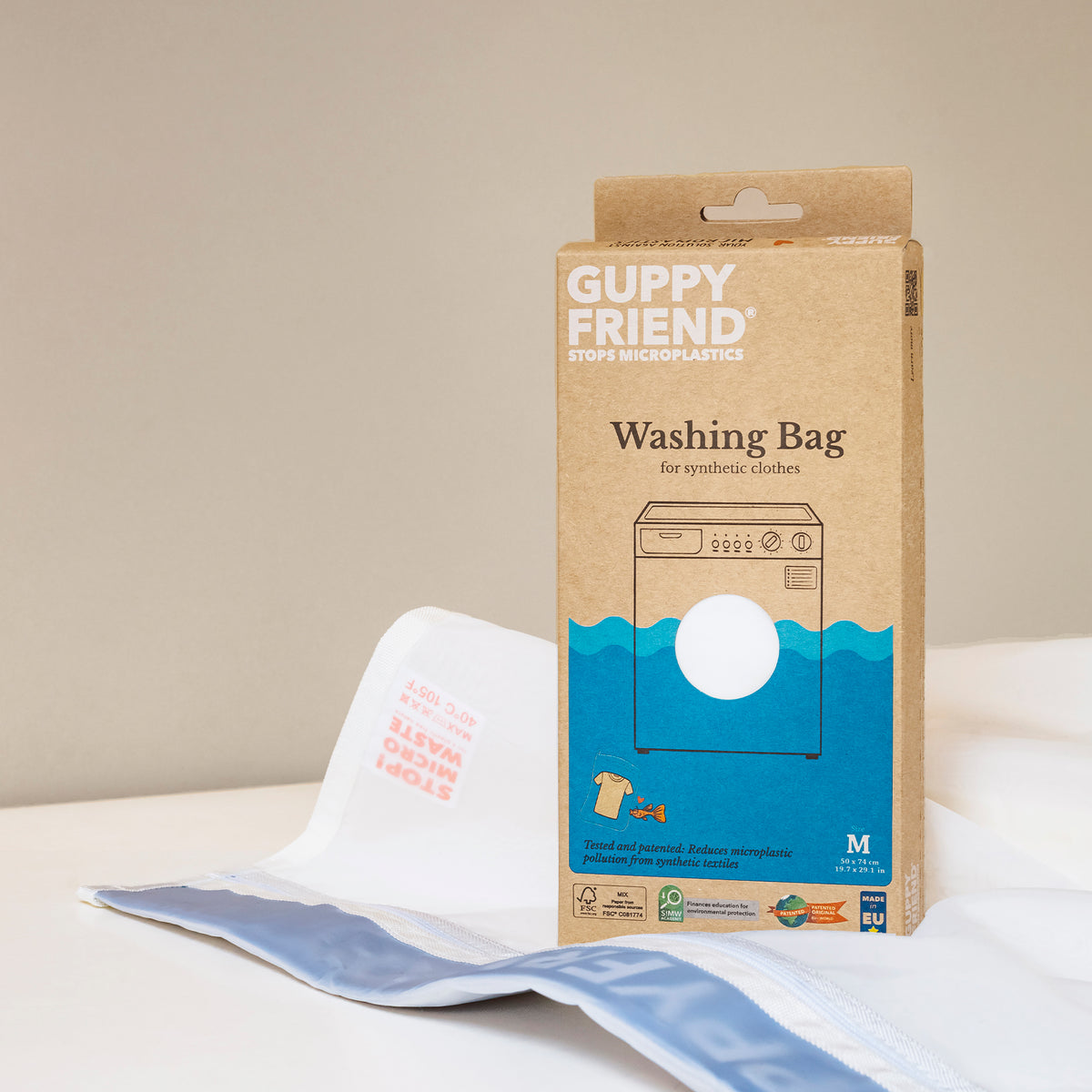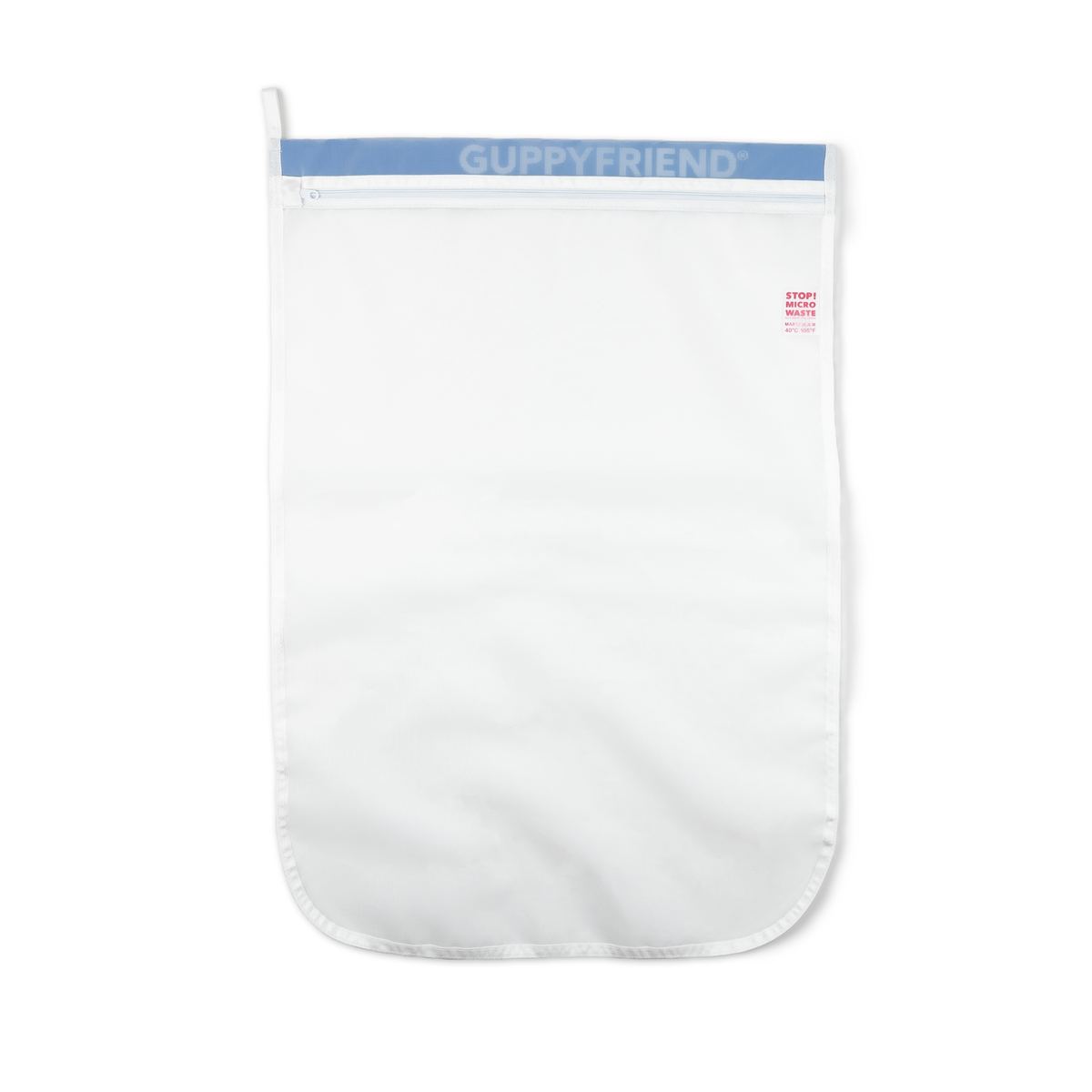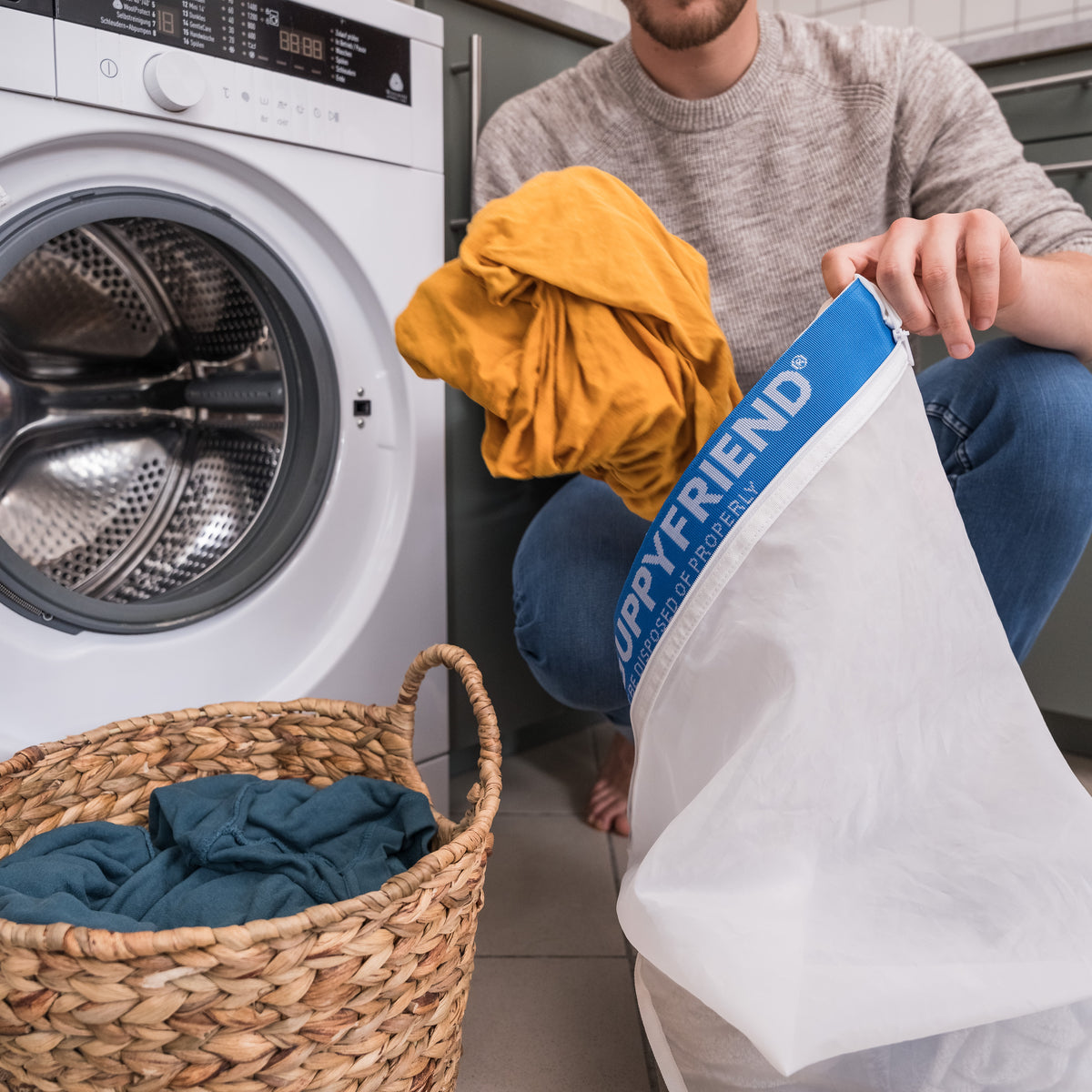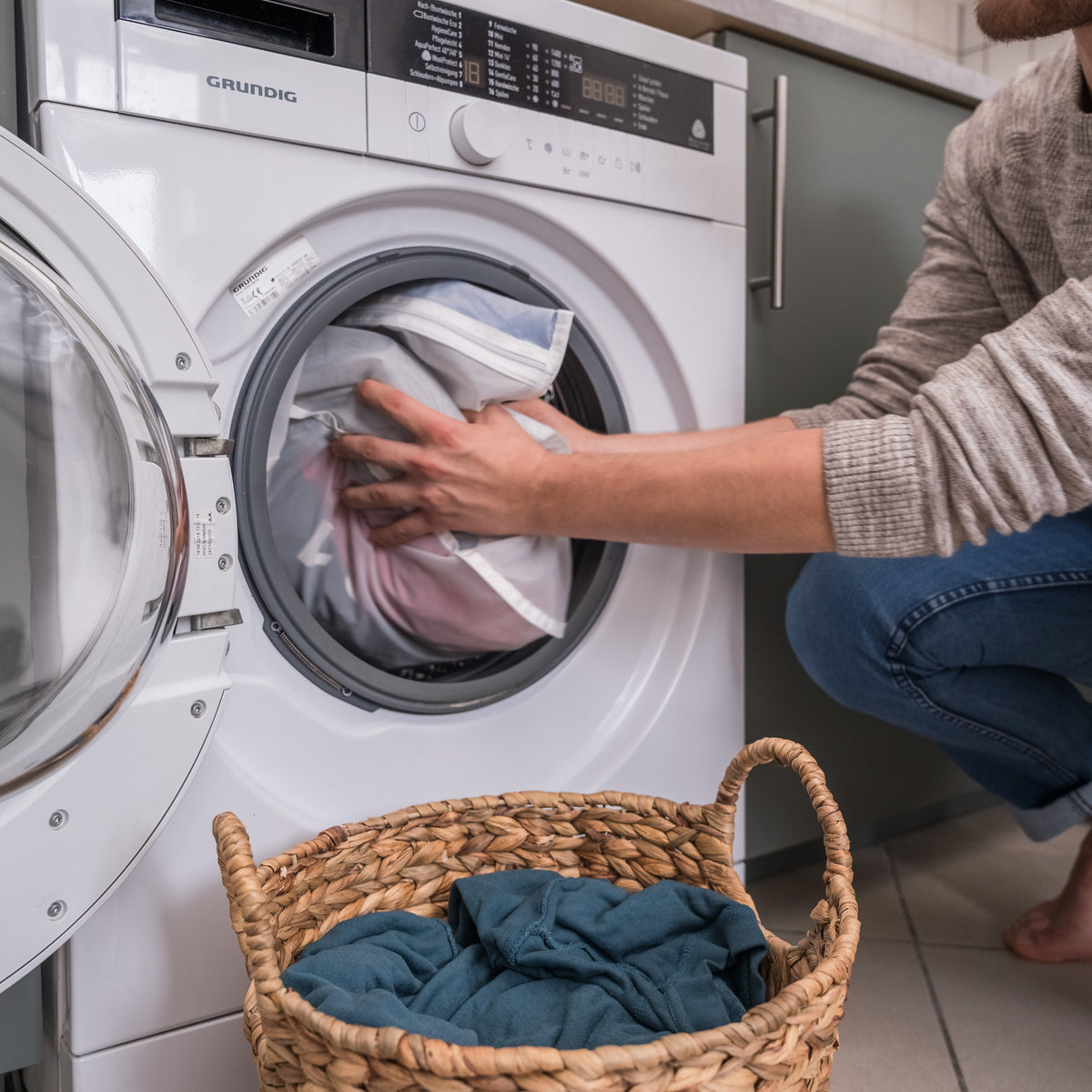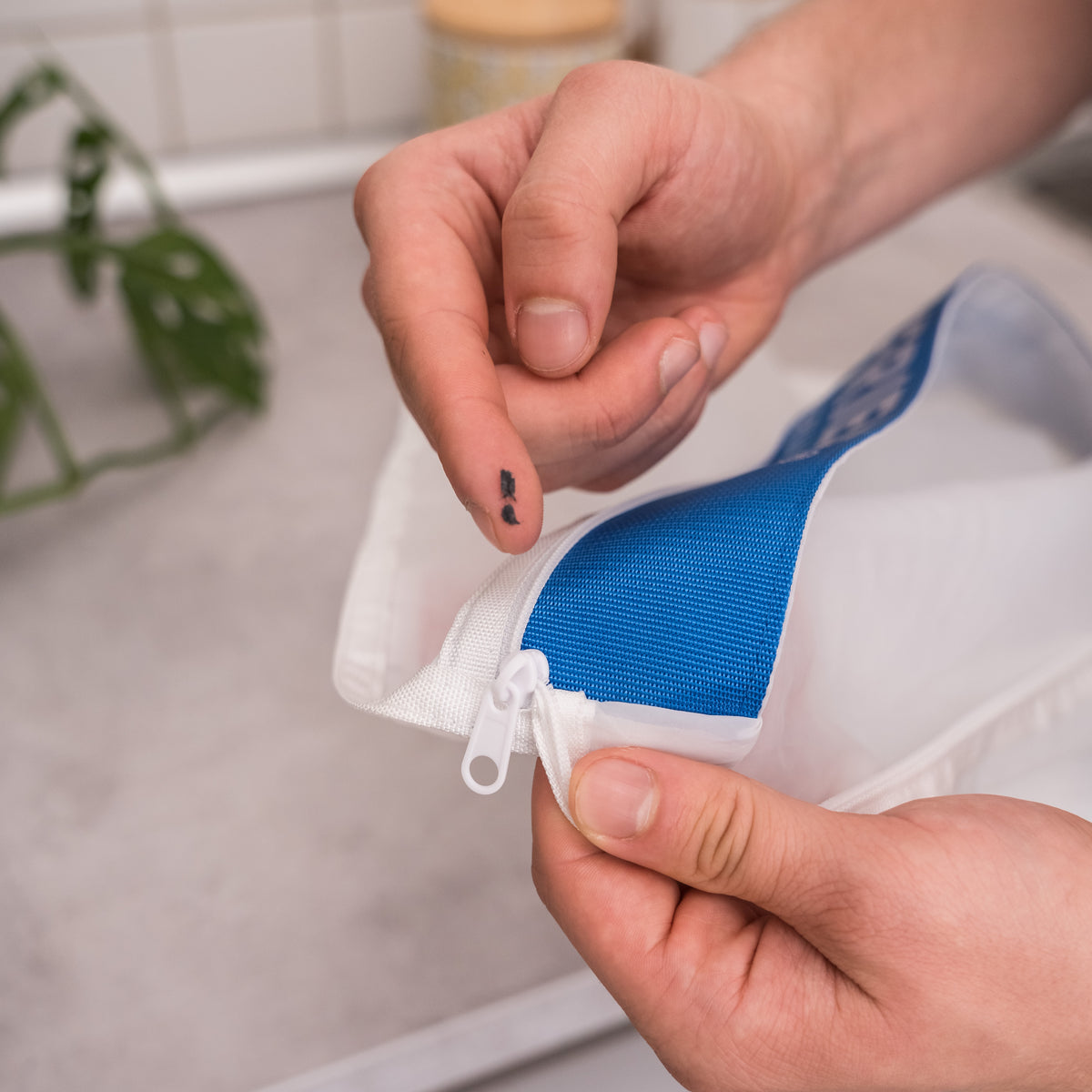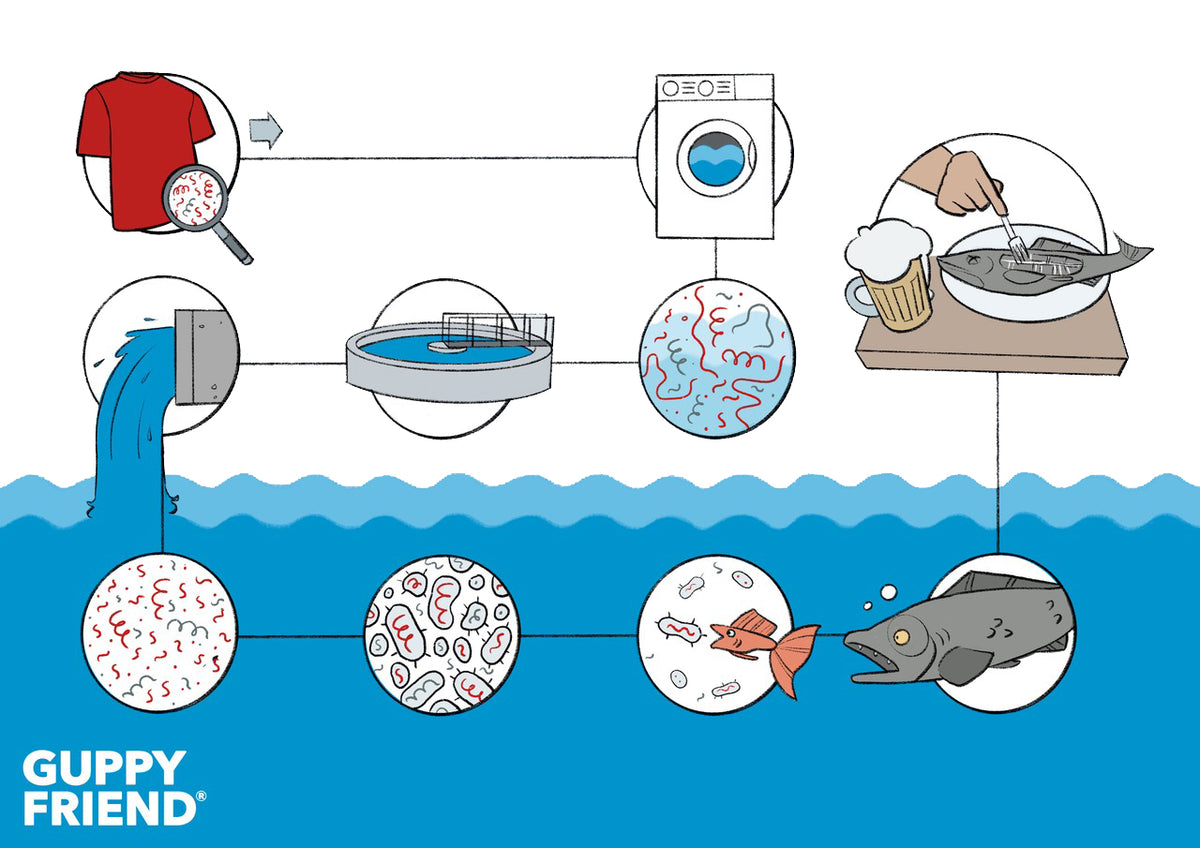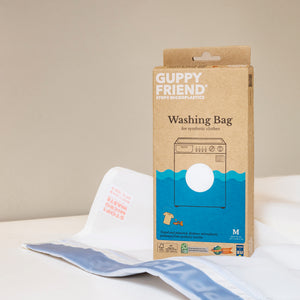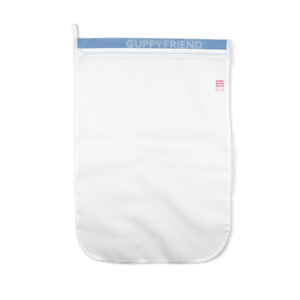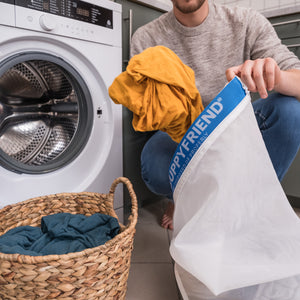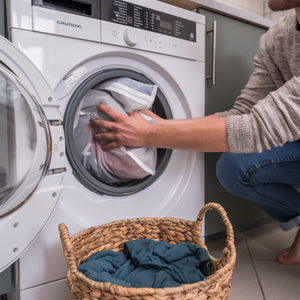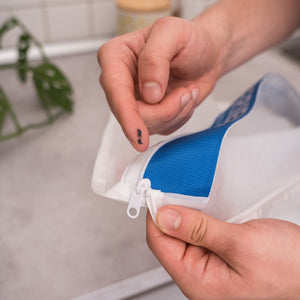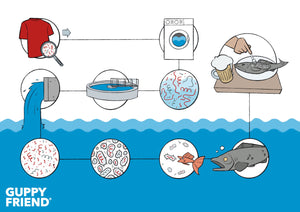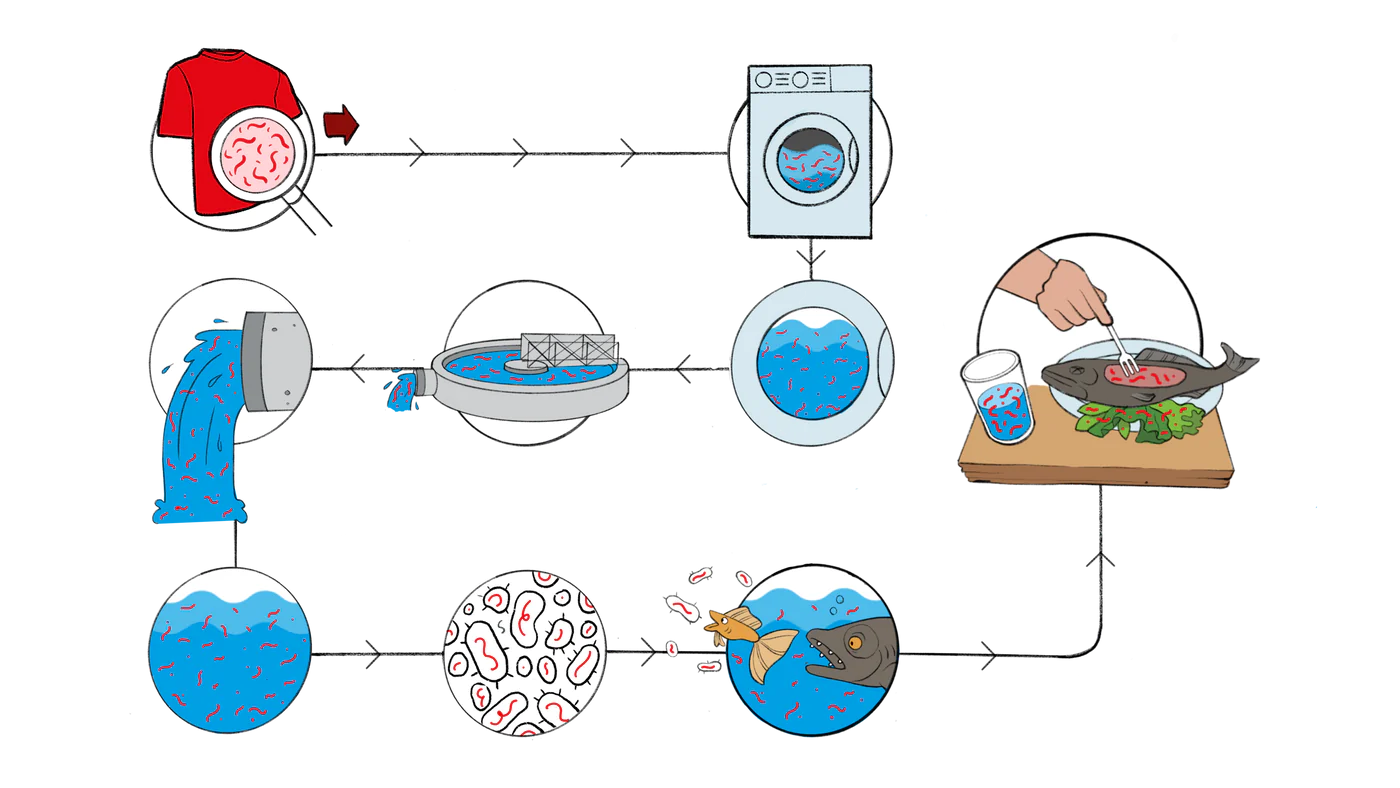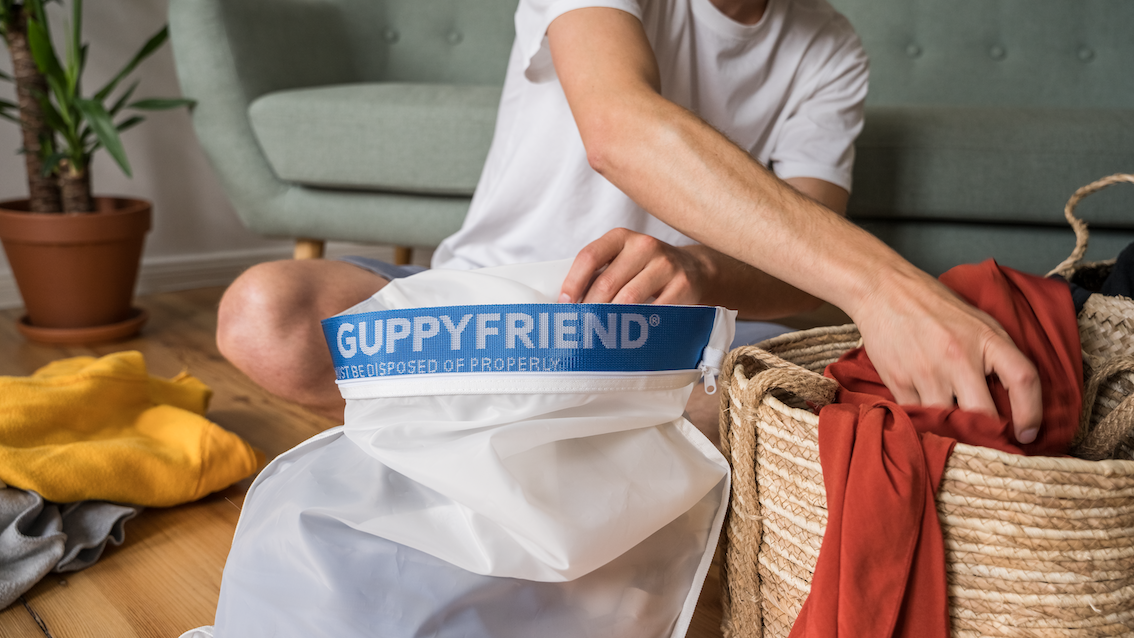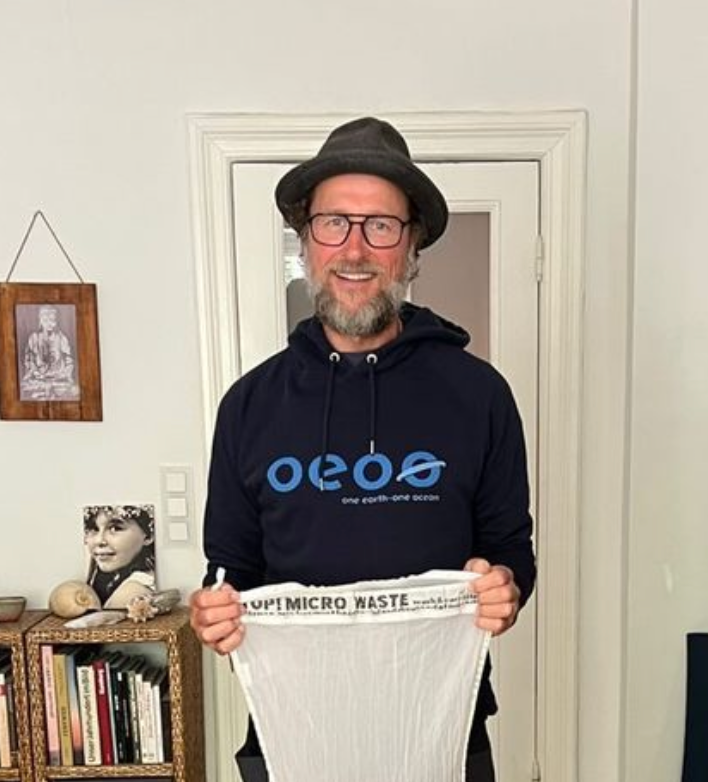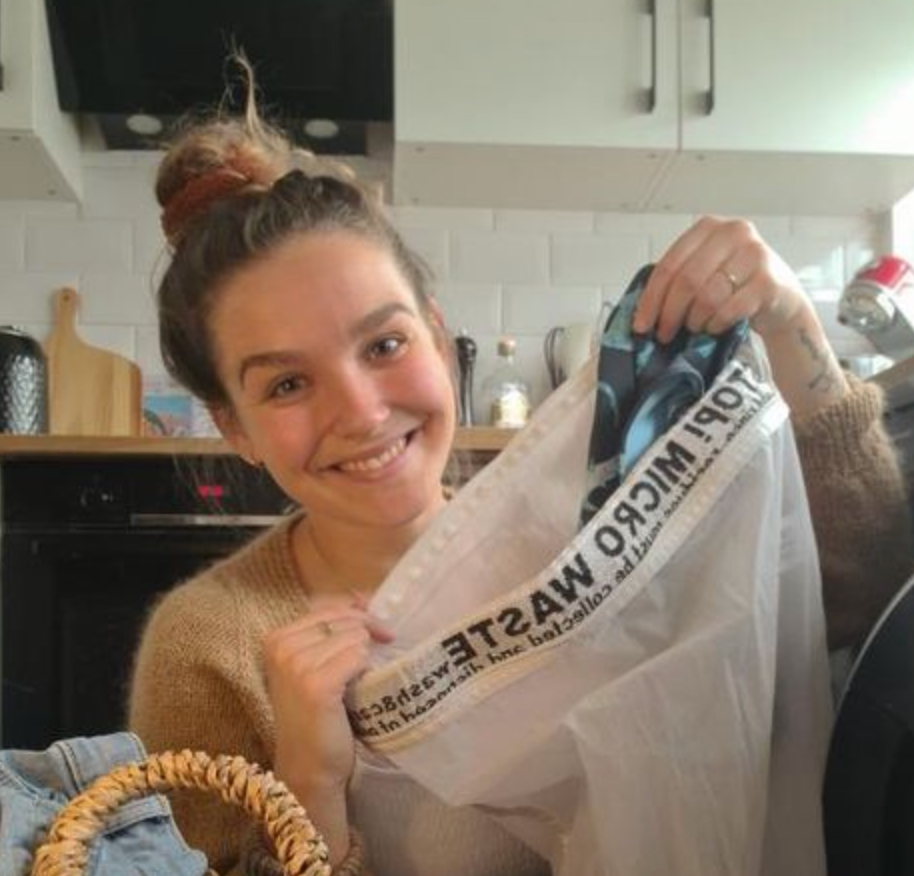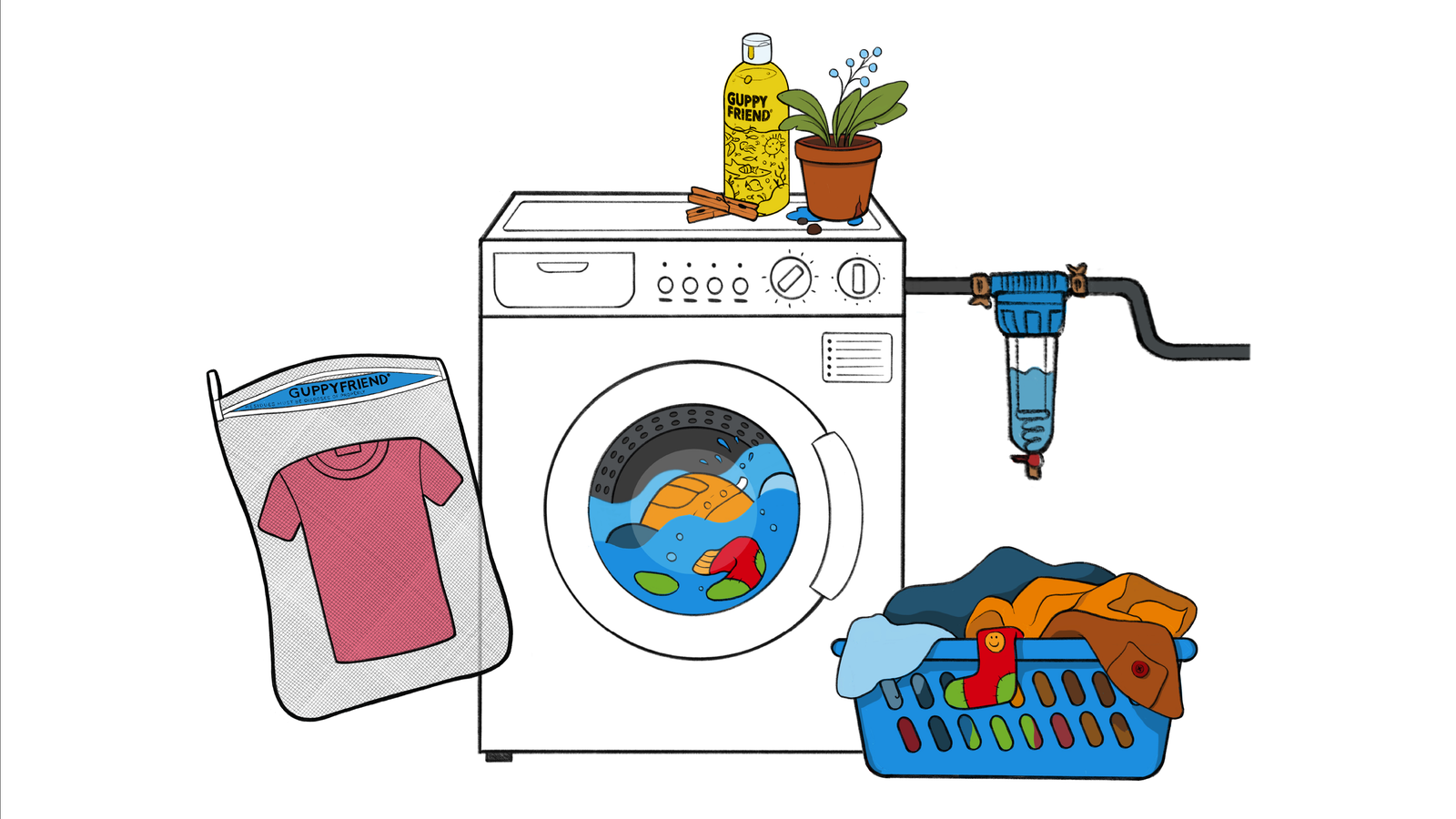We developed the GUPPYFRIEND Washing Bag to help reduce the amount of microplastic fibres entering the environment. These break off, for example, when washing synthetic textiles (polyester, acrylic, nylon, etc.). It therefore makes sense to wash particularly these textiles in the bag. Fleece jackets, sportswear and outdoor clothing are often made entirely or to a large extent of synthetic fibres, but most other garments also contain a certain amount of synthetics. You can check the care label to see what your garments are made of. However, clothes made of pure cotton and wool can also be washed in the GUPPYFRIEND Washing Bag, because textiles made of natural materials also lose fibres. Washing in the GUPPYFRIEND Washing Bag significantly reduces fibre breakage and thus protects your clothes from wear and tear. You can enjoy your clothes much longer - another sustainable advantage of the Guppyfriend Washing Bag.
By the way: Unfortunately, synthetic fibres may even be present in clothes if they are not indicated on the care label. The rules for listing the components on care labels vary widely, thus a jumper labelled as 100% wool may contain up to 10% of synthetic fibres.

